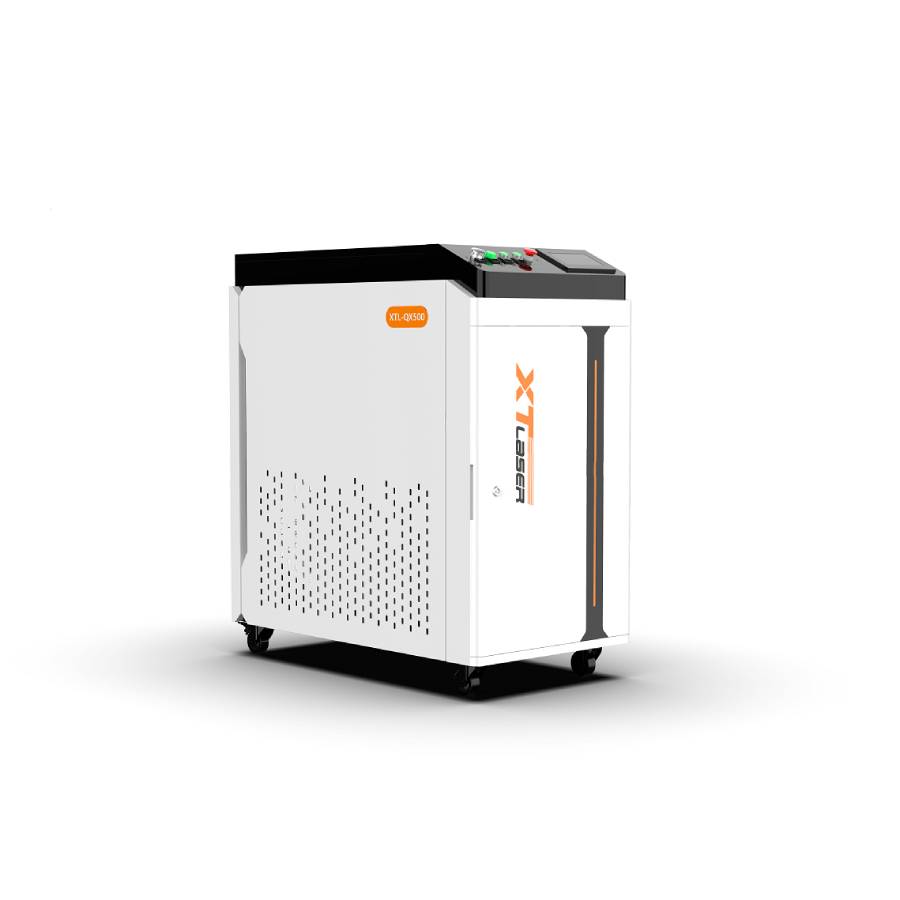 English
English Español
Español  Português
Português  Français
Français  日本語
日本語  Deutsch
Deutsch  tiếng Việt
tiếng Việt  Italiano
Italiano  Nederlands
Nederlands  ภาษาไทย
ภาษาไทย  Polski
Polski  한국어
한국어  Svenska
Svenska  magyar
magyar  Malay
Malay  বাংলা ভাষার
বাংলা ভাষার  Dansk
Dansk  Suomi
Suomi  हिन्दी
हिन्दी  Pilipino
Pilipino  Türkçe
Türkçe  Gaeilge
Gaeilge  العربية
العربية  Indonesia
Indonesia  Norsk
Norsk  تمل
تمل  český
český  ελληνικά
ελληνικά  український
український  Javanese
Javanese  فارسی
فارسی  தமிழ்
தமிழ்  తెలుగు
తెలుగు  नेपाली
नेपाली  Burmese
Burmese  български
български  ລາວ
ລາວ  Latine
Latine  Қазақша
Қазақша  Euskal
Euskal  Azərbaycan
Azərbaycan  Slovenský jazyk
Slovenský jazyk  Македонски
Македонски  Lietuvos
Lietuvos  Eesti Keel
Eesti Keel  Română
Română  Slovenski
Slovenski  मराठी
मराठी  Srpski језик
Srpski језик
Selection analysis of continuous laser and pulsed laser cleaning
2021-08-24
At present, there are pulsed laser cleaners and continuous laser cleaners on the market, both of which can remove dirt on the surface of the substrate. The only difference is that the pulsed laser cleaner uses pulsed laser emission. The continuous laser cleaning machine uses a continuous laser transmitter. The pulsed laser cleaner can achieve zero damage to the substrate after cleaning the dirt, which is suitable for cleaning products with high requirements on the surface of the substrate; while the continuous laser cleaner has almost all damage to the substrate and is suitable for large-area cleaning, such as Steel plate rust removal, paint removal, shipyard rust removal, etc.
Equipment characteristics:
◆Non-contact cleaning, without damaging the base material of the parts. To
◆Does not need any chemical cleaning fluid, low noise, safe and green. To
◆Easy to operate, just power on, and it can be hand-held or cooperated with a manipulator to realize automatic cleaning. To
◆The cleaning efficiency is very high, saving time. To
◆The first investment, no consumables, the equipment is simple and easy to operate and maintain, saving costs. To
Differences between two models
Both continuous lasers and pulsed lasers can remove paint on the surface of the material to achieve a cleaning effect.
Under the same power conditions, the cleaning efficiency of pulsed lasers is much higher than that of continuous lasers. At the same time, pulsed lasers can better control the heat input to prevent excessive substrate temperature or micro-melting.
CW lasers have advantages in price, and high-power lasers can be used to make up for the efficiency gap with pulsed lasers. However, high-power CW lasers have greater heat input and damage to the substrate will increase.
Conclusion
Therefore, there is a fundamental difference between the two in application scenarios. High precision requires strict control of the heating of the substrate, and application scenarios that require the substrate to be non-destructive, such as molds, should be pulsed lasers. For some large steel structures, pipelines, etc., due to their large size and fast heat dissipation and low requirements for substrate damage, continuous lasers can be selected.

Zoro
WA: +86-18206385787





